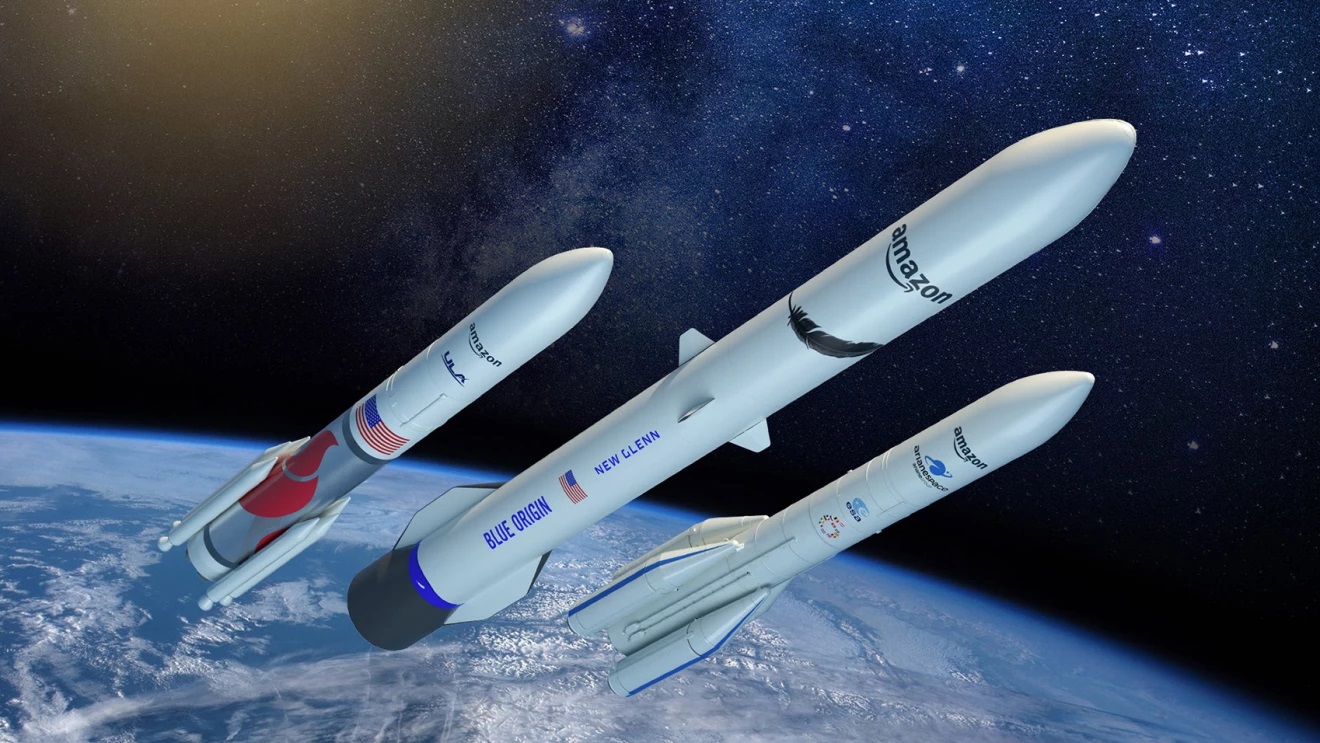Amazon has announced that it will launch its first 27 Project Kuiper satellites next week. The space-bound launch is meant to start setting up Amazon's satellite internet program meant to compete with Elon Musk's Star Link.Eventually, Amazon plans to have up to 3,200 low earth orbit satellites, creating a network that is supposed to offer high-speed, low-latency internet.
Amazon says it expects offer the service "later this year."The KA-01 mission satellites are going to launch on an Atlas V rocket from United Launch Alliance next Wednesday (April 9) at noon ET/ 9 a.m.

PDT. That is assuming weather and technology cooperate at the Cape Canaveral Space Force Station in Florida."We’ve done extensive testing on the ground to prepare for this first mission, but there are some things you can only learn in flight, and this will be the first time we’ve flown our final satellite design and the first time we’ve deployed so many satellites at once," Rajeev Badyal, vice president of Project Kuiper, said in a statement.
What is Project Kuiper?We have a more detailed guide to Project Kuiper, but basically, Amazon's satellite internet service has been in the works since at least 2018. The company got approval to start launching satellites in 2020, and an announcement was made in 2021 that launches would start occurring in 2022. Though that expected launch was only for a couple of prototype satellites.
The orbital system will be built on 3,200 LEO satellites. By comparison, SpaceX's Starlink constellation has over 7,000 LEO satellites that it's been launching since 2019.Similar to Starlink, there are or will be multiple offerings for Project Kuiper's technology back here on Earth.
One offering will be a small 7-inch square designed dish weighing about 1 pound that can get speeds up to 100Mbps. It's a competitor to the Starlink Mini which released last summer.To further compete with Starlink and SpaceX, Amazon plans to offer bigger dishes for residential and businesses that will get up to 1Gbps.
The terminals are expected to be produced for "less than $400 each," which may be subsidized by the company to attract early customers.“No matter how the mission unfolds, this is just the start of our journey, and we have all the pieces in place to learn and adapt as we prepare to launch again and again over the coming years," Badyal said.More from Tom's GuideAmazon reportedly makes last-minute bid for TikTok — what we knowAmazon is removing this privacy feature from its Echo smart speakers on March 28 — what you need to know7 biggest Amazon event announcements you missed — Alexa Plus, pricing, smart home upgrades and more.
Technology

Amazon's Starlink competitor finally blasts off next week — what you need to know

Amazon's first Project Kuiper satellites for its version of satellite internet will launch soon.















